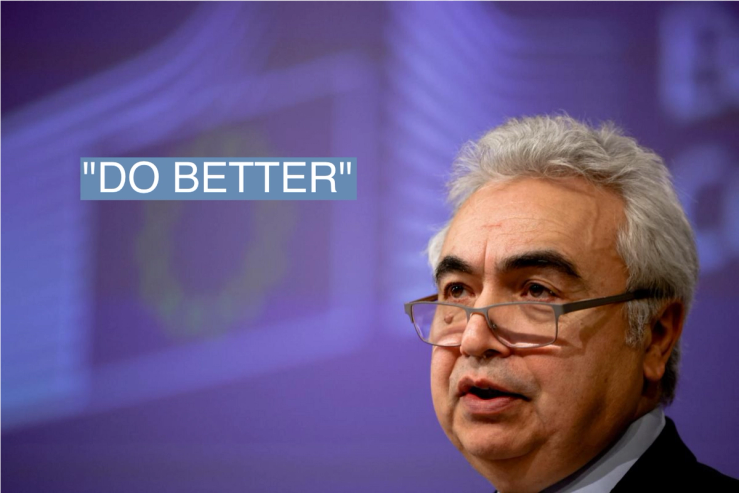The News
International financial institutions are failing to do enough to help fund the energy transition in developing countries, particularly in sub-Saharan Africa, the head of the International Energy Agency warned in an interview.
Fatih Birol noted that overall solar-power deployment in the region was outstripped by that of the Netherlands, a country with a fraction of the landmass and far less sunlight, and that even though 40% of global solar-power potential was in sub-Saharan Africa, half of its people lacked electricity. But the cost of capital was between three and four times higher than richer countries.
“There is now a major role for the international financial institutions to de-risk those investments,” Birol said. “When we look at our efforts globally … the international financial institutions in Washington and beyond, in my view, they get very bad marks.”
Know More
Birol said that though clean-energy investments would outstrip fossil-fuel investments this year for the first time, overall annual spending on green energy infrastructure — currently projected to be $1.7 trillion — would need to increase fourfold, and that 80% of overall spending would need to be focused on developing countries.
“The advanced economies have two jobs to do,” he continued. “One, to do their homework domestically, but also help others, even for their own benefit — leave aside their historical responsibility.”
In particular, Birol said European countries had both a responsibility and an incentive to help their African counterparts grow their economies and shift to clean energy, warning of the potential of unrest and mass migration were it to fail to do so. “Europe has to make, in my view, more efforts to help Africa … access electricity,” he said. “If you are not able to do that, the consequences will be rather serious for European countries.”
Prashant’s view
Birol’s remarks were the latest to pile pressure on organizations such as the International Monetary Fund and the World Bank. Ahead of the two countries’ spring meetings in Washington, D.C., the IMF was criticized by a developing-country task force for making it harder for countries in need to tackle and adapt to climate change. And the World Bank has faced calls from economists, and its own shareholders, to take on more risk to allow it to dole out more money to developing countries to mitigate and address climate change.
Room for Disagreement
Supporters of the status quo at the IMF and World Bank argue the institutions already have it within their mandates to do more on climate change, so any significant change could be slow in coming. The World Bank in particular has argued in favor of maintaining its current lending practices in order to hold on to its prized triple-A rating from all major credit agencies, saying that allows it to keep overall borrowing costs low for the developing countries that rely on it.
The View From washington dc
African countries in recent years have stepped up calls for greater influence at major international financial institutions. They argue the organizations do not do enough to prioritize countries suffering from a triple whammy of stubbornly-high inflation, growing levels of public debt, and an overall funding squeeze, Semafor Africa’s Editor Yinka Adegoke wrote in April about discussions at IMF/World Bank Spring Meetings in Washington DC. The African policymakers worry that the challenges could wipe out economic and social progress of recent decades.
Notable
- Bank bailouts in the U.S. and Switzerland in recent months suggest that the IMF and World Bank’s comparable rigidity may be outdated, the economist Mona Ali argued in Phenomenal World.


